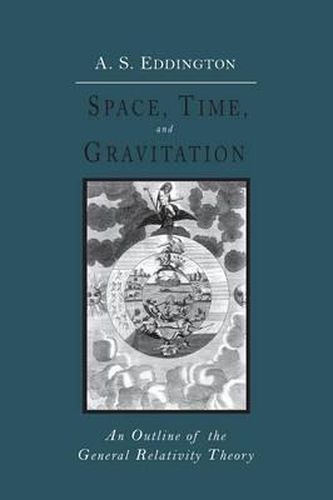Readings Newsletter
Become a Readings Member to make your shopping experience even easier.
Sign in or sign up for free!
You’re not far away from qualifying for FREE standard shipping within Australia
You’ve qualified for FREE standard shipping within Australia
The cart is loading…






2013 Reprint of 1923 Edition. Exact facsimile of the original edition, not reproduced with Optical Recognition Software. Sir Arthur Stanley Eddington was a British astrophysicist of the early 20th century. He was also a philosopher of science and a popularizer of science. The Eddington limit, the natural limit to the luminosity of stars, or the radiation generated by accretion onto a compact object, is named in his honor. He is also famous for his work regarding the theory of relativity. He wrote a number of articles which announced and explained Einstein’s theory of general relativity to the English-speaking world. World War I severed many lines of scientific communication and new developments in German science were not well known in England, and vice versa. He also conducted an expedition to observe the Solar eclipse of 29 May 1919 that provided one of the earliest confirmations of relativity, and he became known for his popular expositions and interpretations of the theory.
$9.00 standard shipping within Australia
FREE standard shipping within Australia for orders over $100.00
Express & International shipping calculated at checkout
2013 Reprint of 1923 Edition. Exact facsimile of the original edition, not reproduced with Optical Recognition Software. Sir Arthur Stanley Eddington was a British astrophysicist of the early 20th century. He was also a philosopher of science and a popularizer of science. The Eddington limit, the natural limit to the luminosity of stars, or the radiation generated by accretion onto a compact object, is named in his honor. He is also famous for his work regarding the theory of relativity. He wrote a number of articles which announced and explained Einstein’s theory of general relativity to the English-speaking world. World War I severed many lines of scientific communication and new developments in German science were not well known in England, and vice versa. He also conducted an expedition to observe the Solar eclipse of 29 May 1919 that provided one of the earliest confirmations of relativity, and he became known for his popular expositions and interpretations of the theory.